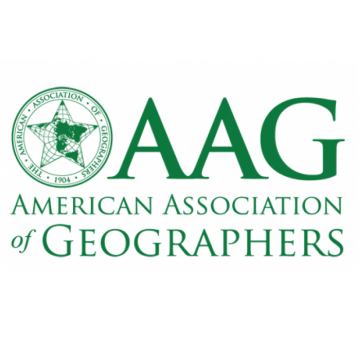Call for Papers: Urban atmospheres of (in)security, disaster and recovery

AAG 2023 Denver, Colorado – March 23rd-27th
Session organisers: Paul Simpson (University of Plymouth), Sara Fregonese (University of Birmingham), Damien Masson (CY Cergy Paris University), Simon Runkel (Friedrich-Schiller-Universität Jena), Hélène Heurtel (L’Institut Paris Region), Sam Berlin (University of Plymouth), Katharina Ciax (Friedrich-Schiller-Universität Jena), Angeliki Drongiti (CY Cergy Paris University).
Recently, geographers have become increasingly interested in the taking place of urban security policies, practices and systems and how they influence (intentionally or not) the felt lived experience of cities on a day-to-day basis (Adey et al. 2013; Allen 2006; Krasmann and Hentschel 2019; Nyman 2021). Expanding upon well-established concerns about how securitization discourses frame and represent threats (Stevens and Vaughan-Williams 2016; Ragazzi 2022), critical security scholars increasingly seek to address the emotional and the affective in exploring the everyday embodied perception of security (Crawford 2000; Åhall and Gregory 2013; Nyman 2021). As part of this, geographers have turned to conceptualizations of ‘atmosphere’ to consider how feelings of (in)security in the face of a range disasters and threats – from natural disasters to terrorist attacks and beyond – can be thought and understood spatially. This has led to a focus on how a range of actors work to design, stage, produce, perform, engineer, or tune certain desirable, often calming, atmospheres over a variety of geographic contexts (Adey et al 2013; Bille, Bjerregaard and Sørensen 2015; Bissell 2010; Edensor and Sumartojo 2015; Philippopoulos-Mihalopolous 2016; Sumartojo and Pink 2018; Urry et al 2016; Wall 2019; Wilhelm 2020). At the same time, there is increasing recognition that such efforts to secure a specific atmospheric outcome are always contingent and may unfold differently than intended and unevenly in the space of atmospheric intervention while also spilling out beyond it (Paiva and Sanchez 2020). This, in turn, has drawn into view the unruly more-than-human composition of such atmospheres of (in)security, combining the technologies, architectures, materialities, publics, and practices that come together in the ongoing and contingent taking-place of everyday life.
Questions of atmosphere highlight the simultaneously shared and dispersed reality of being together, where compositions of and beyond the human meet to produce shared atmospheres that are experienced differentially (Massumi 2015, Leff 2021). This understanding of the everyday life of urban shared spaces problematizes flat conceptions of security that prioritize the fears and wellbeing of a body politic imagined as homogeneous, and mirrors accounts of androcentrism and Islamophobia critiqued in the critical security literature (Breen-Smyth 2014, 2020; Martini 2020; Ragazzi 2016; Pain 2014).
This session brings together papers concerned with the issue of the ordinary felt experiences of (in)security in cities and of how urban atmospheres shape and aid the emotional coping and recovery of urban residents within contexts of (in)security. In particular, we welcome papers which consider:
- ‘Atmotechnics’ (Wall 2019) and everyday practices of securing cities
- The role of state, private, and non-state actors in curating atmospheres of (in)security/recovery
- The curation of atmospheric backgrounds of security/recovery
- Changing urban security measures and security practices in the city
- Perceptions, feelings, and experiences associated with threat
- Felt experiences of post-event recovery
- Differential, intersectional and unequal feelings of (in)securities
- (In)security, recovery, and more-than-human agencies
Please send abstracts to Paul Simpson (paul.simpson@plymouth.ac.uk) by 24th October.